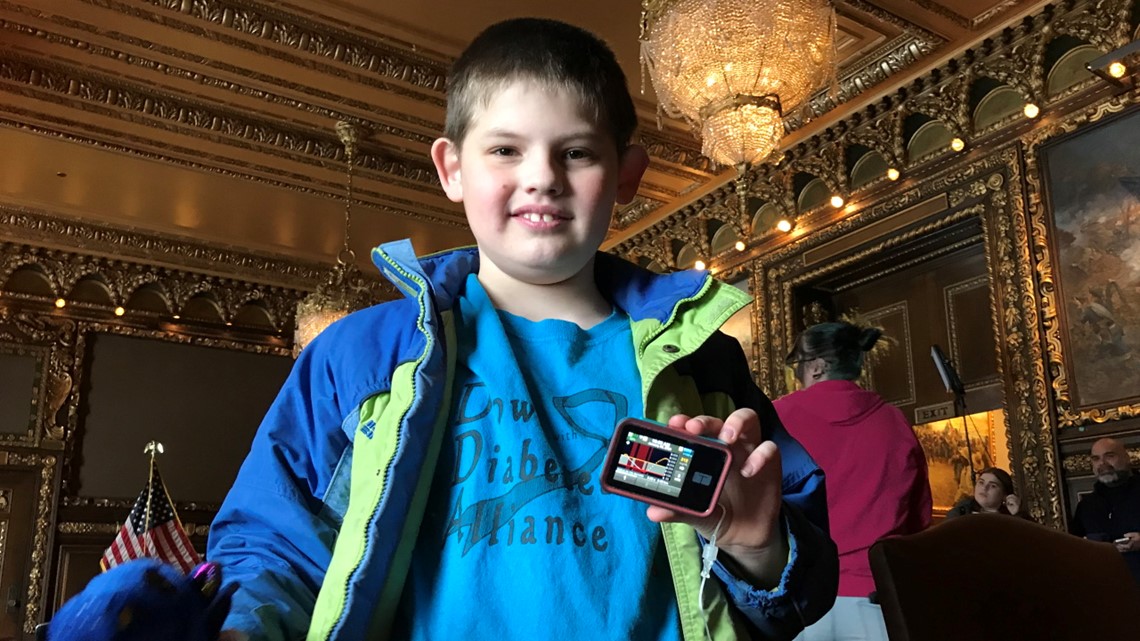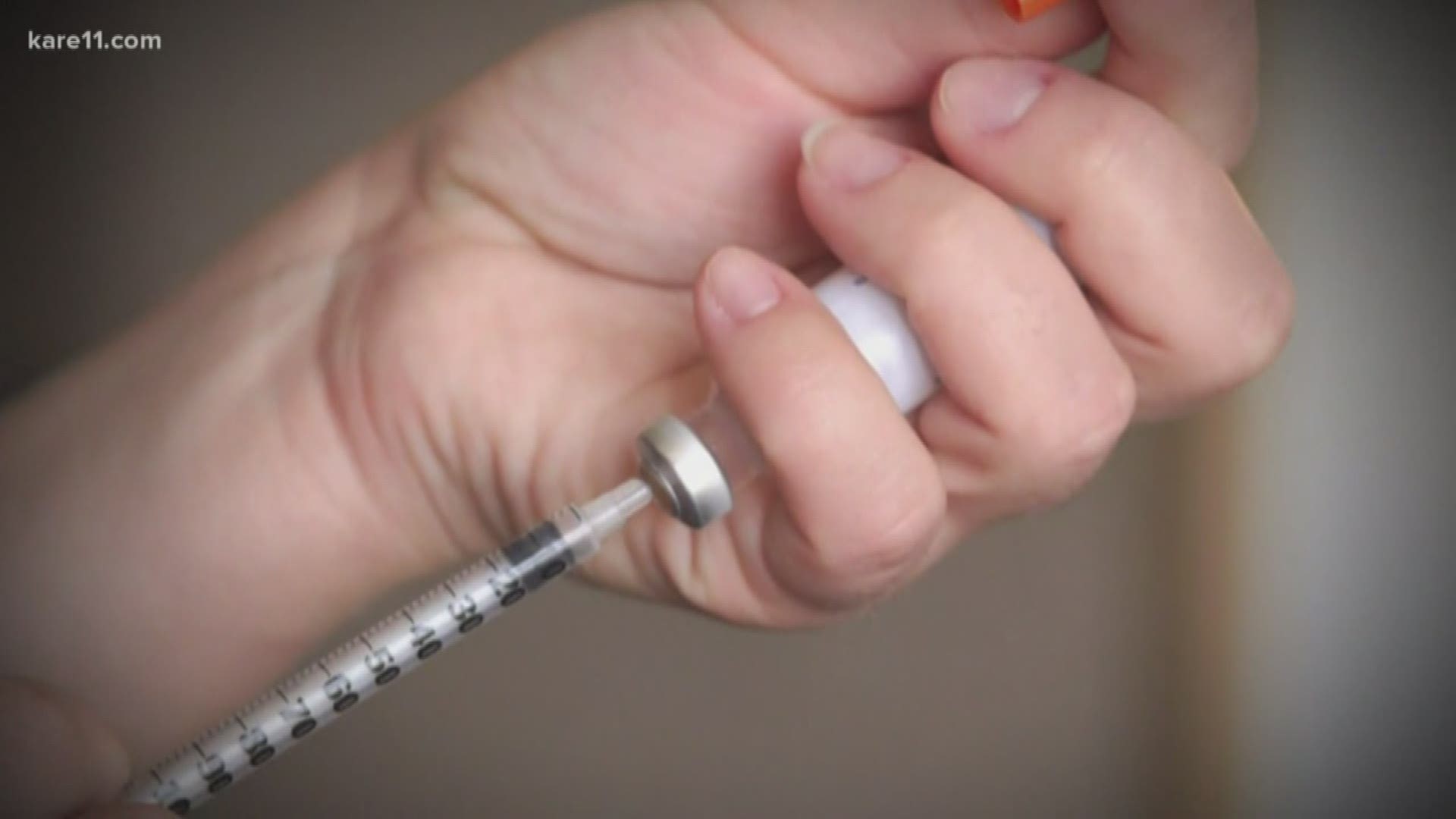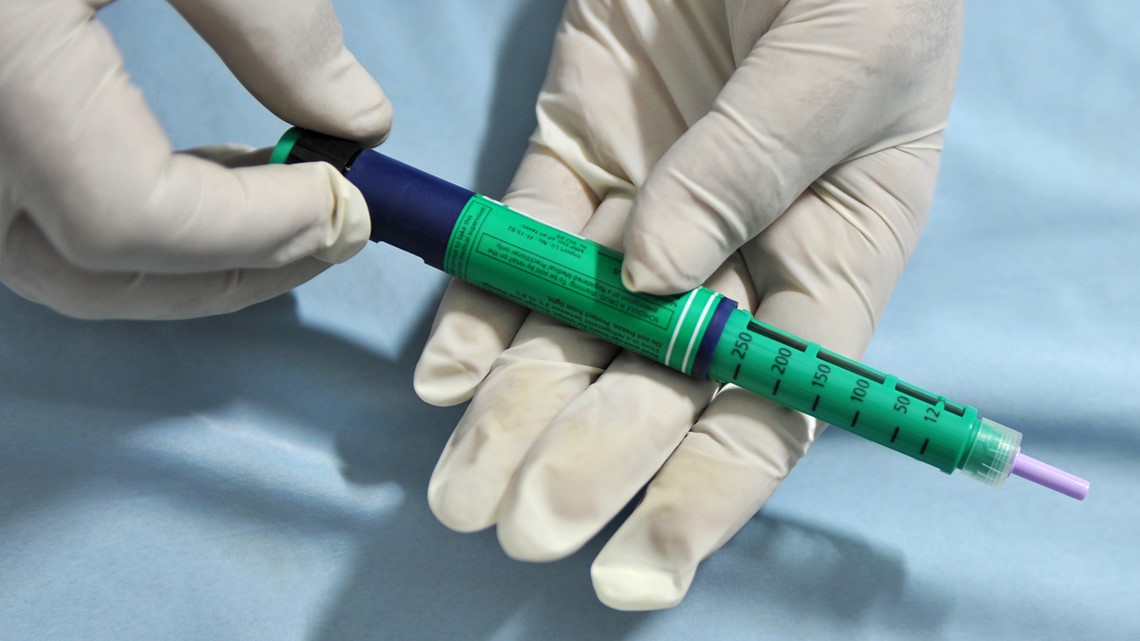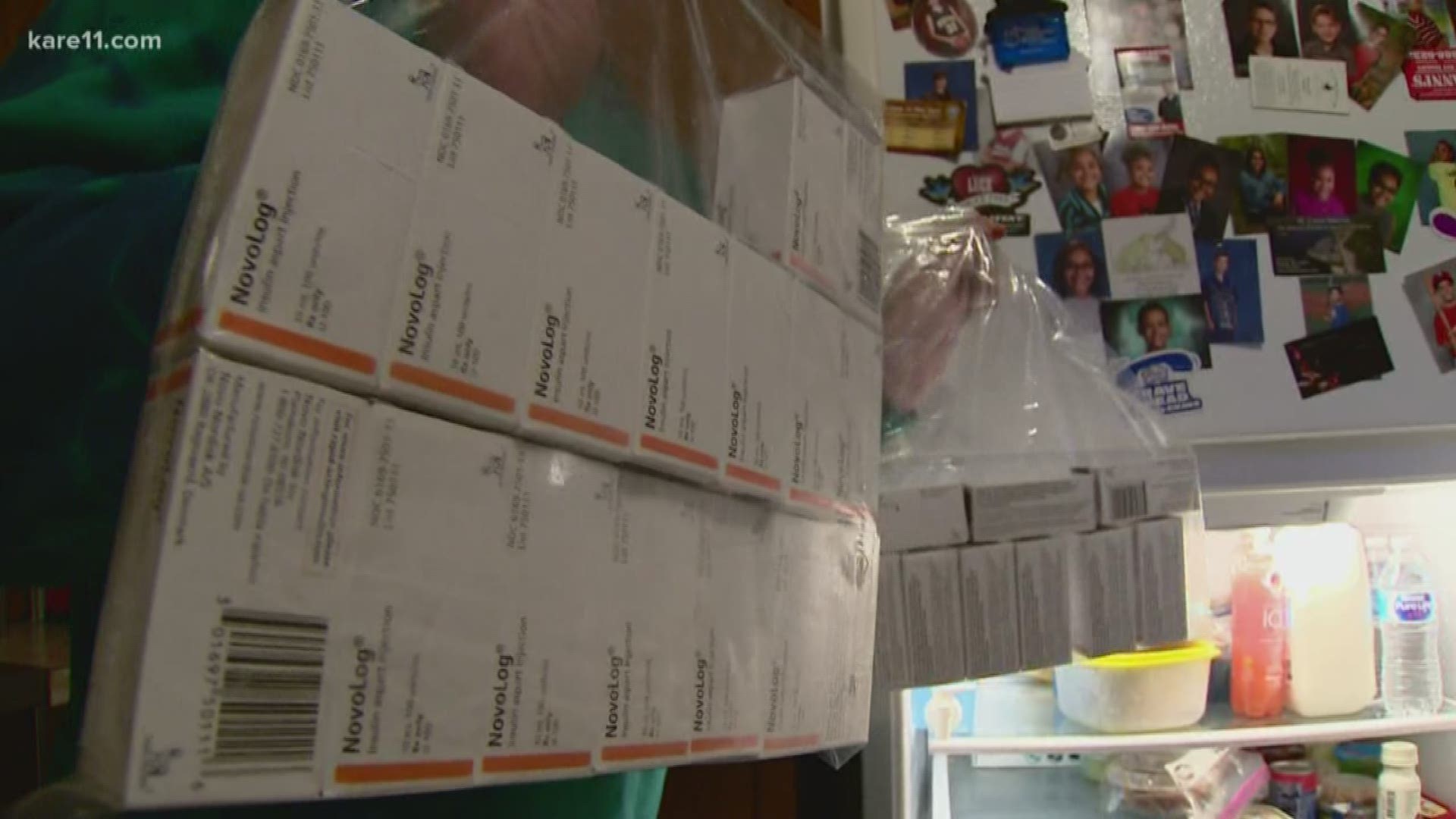ST PAUL, Minn. — Lawmakers have reached an impasse in their negotiations over an emergency insulin plan, after months of private talks and public hearings.
The key sticking point remains over the question of whether to place a new fee on insulin manufacturers to help finance the program. That fee is a key element of the House DFL plan but is a nonstarter for Senate Republicans.
On Thursday, Democrats and diabetics gathered at the Capitol to urge Republicans to agree to the House bill, which includes elements of the Senate's plan.
"It has been 673 days since House DFLers introduced the Alec Smith Emergency Insulin Act," House Speaker Melissa Hortman told reporters, referencing the bill named for a young Twin Cities man who died while rationing his insulin.
"We know because of the price spikes that these pharmaceutical companies are making tons of money on insulin. We also know they can afford to participate in the solution."
Sen. Eric Pratt of Prior Lake, the lead Republican on the insulin working group, said the Senate prefers tapping into the existing tax on medical providers rather than imposing a fee on drugmakers.
"We could get this done if we were more worried about helping Minnesotans than punishing the manufacturers with new taxes and penalties," Sen. Pratt told KARE.
He said drug prices are affected by many factors, including rebates insulin makers have to pay to insurance companies, pharmacy benefit managers and state-run health programs.
"My job isn’t to figure out whether they’re making a ton of money or not. There are more forces driving up the price of insulin, other than just the cost of insulin."
The two sides have agreed there should be two parts of any insulin program: a free, 30-day emergency supply available through pharmacists and an opportunity to apply for a one-year supply through a physician who would seek donations of insulin from drug companies.
They've also reached agreement on eligibility -- those who make up to 400 percent of the federal poverty line. That's roughly $15,000 for a single person and $100,000 for a family of four.
The House plan features $1 million in tax dollars to set up the system but would pay for the emergency 30-day supply using a fees on drug companies. The fee would be adjusted based on how many patients take part in the program.
Rep. Michael Howard, the chief author of the Alec Smith Act, said it addresses an urgent need for those who run out of their life-saving drug and can't afford the co-pays or out-of-pocket costs.
"Who’s side are you on? Minnesotans who can’t afford the crushing cost of their insulin or the drug manufacturers that have profited richly as they’ve jacked up the prices higher and higher?" Rep. Howard remarked.
Alexis Stanley, a 20-years-old Concordia University student, said Type 1 diabetics like her are at the mercy of the insulin market.
"My insulin when up from $269 to $324 in the month of December for no reason. Nothing about it has changed. It’s still the same tiny, life-saving vial," Stanley said.
"I did nothing to get Type 1 diabetes. No Type 1 has."


Reporters also heard from a nine-year-old boy from Winthrop, Minnesota who has used an insulin pump for the past three years.
"I am worried about what will happen to me when I become an adult and need to pay for my own insulin, because I know it’s so expensive," Jett Loewy told the crowd of reporters and advocates who gathered in the Governor's Reception Room at the Capitol.
In theory, fewer people would need the emergency supply program conceived by Democrats if more people enrolled for the donated supply system envisioned by Republicans.
That's why the Senate GOP plan calls for the program to automatically sunset -- or be eliminated -- after three years unless there's a proven need to keep it going.



